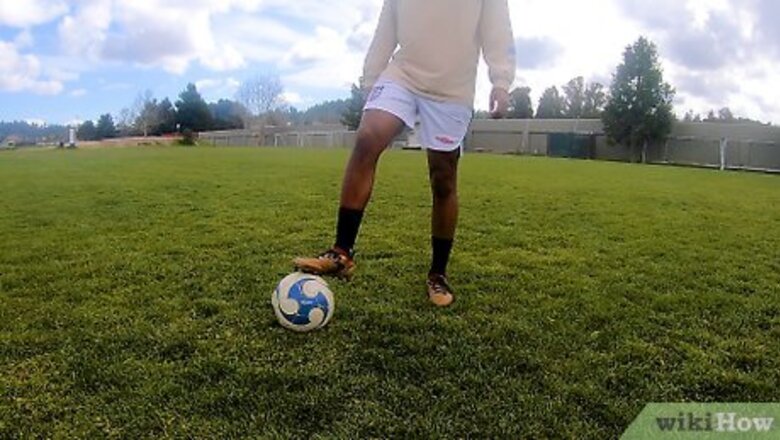
views
Holding the Ball on Your Foot
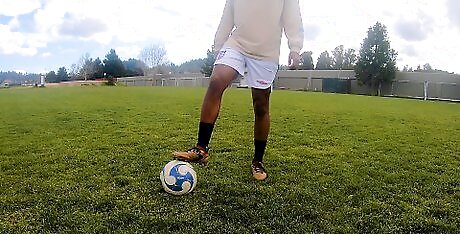
Look for a level surface to stand on. Find a flat surface to prevent the ball from rolling off your foot. Try practicing in your yard, your driveway, or the nearest soccer field. Take advantage of these areas to maintain more control over your balance. The type of surface you play on doesn’t make much of a difference, so go wherever you feel most comfortable. Controlling a ball is easier on a level surface. Once you master the technique, you can balance a ball almost anywhere.
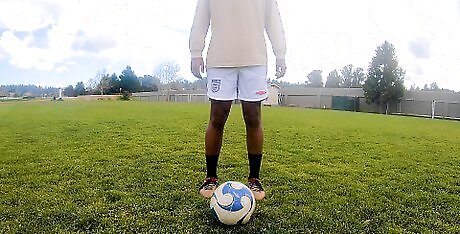
Stand up straight with your feet shoulder width apart. Settle into a strong, stable pose. Test out your stance by lifting your foot slightly off the ground. If you feel like you can hold that position for a while, then you are ready to balance a ball. Otherwise, adjust your positioning until you feel balanced. Most people have a tendency to lean forward or backward when balancing a ball, but doing this throws off your balance.
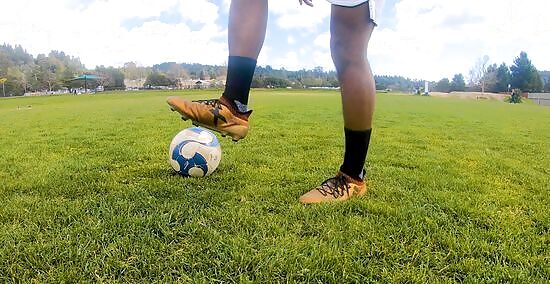
Bend your toes toward your ankle to prepare to hold the ball. Lift your foot up off the ground, then raise your toes as if you’re bringing them back towards your shin. The top part of your foot serves as a flat surface to balance the ball. Keep your foot angled slightly with your toes raised so the ball rolls back towards your leg. If your foot points towards the ground, the ball will end up there. At most, hold your foot up at a 45-degree angle. You don’t need to have such a stiff angle, so keep your foot a little flatter to reduce fatigue.
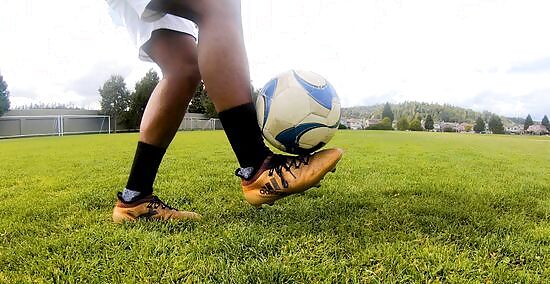
Stiffen your ball-holding ankle when placing the ball on your foot. Lift your foot up off the ground slightly, bending your knee before stiffening your ankle. When you balance a soccer ball there, you can't can't move your foot at all. Your leg controls any movements you need to do to keep the ball in place. When you’re ready, put the ball on your foot, resting it against your leg. Test your positioning before placing the ball. Attempt to move your leg from side to side without shifting your foot’s position. Keep your leg strong but your foot relaxed. Lock your ankle, not your knee! If your foot is tense, the ball may bounce off of it. Also, you may end up tiring out more quickly.
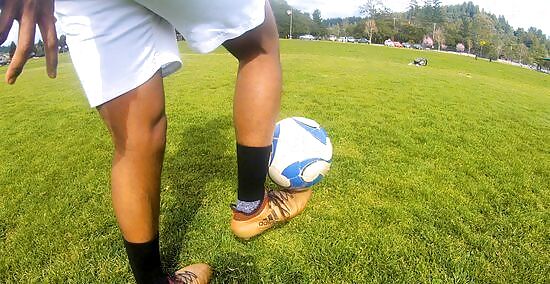
Move your foot with the ball to maintain balance. Eventually, the ball will roll towards the side of your foot. If you feel the ball rolling toward your right, move your foot to the right. If it goes to your left, move your foot to the left to bring the ball back to the center. Continue making adjustments to keep the ball on your foot for longer periods of time. The key to adjusting is slow, smooth motions. When you feel the ball moving, you may be tempted to swing your foot out quickly towards it. You end up overcompensating and losing control of the ball. Practice often to get a sense of how the ball moves and what you need to do to maintain your balance. Eliminate distractions, then focus on feeling the ball against your foot.
Practicing Ball Balance
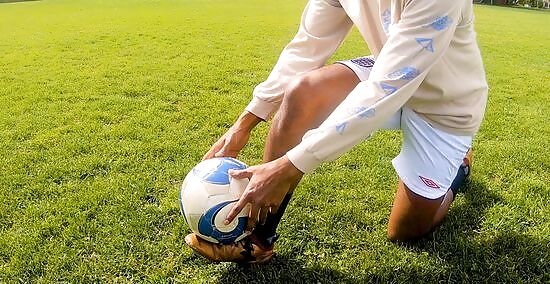
Kneel and put the ball on your foot if you’re having trouble balancing. If you’re a beginner, get on your knees with a foot out in front of you. Tip your foot up like you normally would, then reach forward and place the ball. Balance it there for as long as possible. Once you get the hang of it, try it while standing up. Choose a soft or grassy area to avoid scraping your knees while you practice. This pose gets a little uncomfortable on hard surfaces.
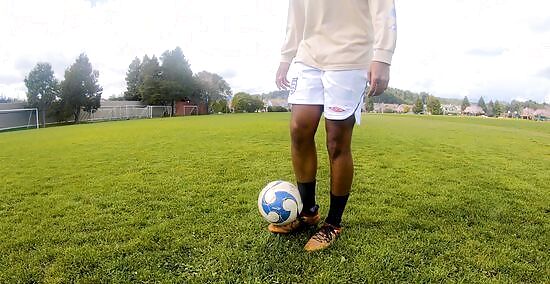
Roll the ball outside your foot to develop good ball control. Rolling the ball not only looks cool, but it reduces the amount of ball chasing you have to do. To roll it, move your foot on top the ball. Pull the ball towards you, then quickly move your foot behind the ball. Once it rolls on top of your foot, tilt your toes up to balance it in place. Balancing the ball this way is a little more advanced than simply putting it on your feet, but it can help you improve. It also saves you from having to retrieve the ball with your hands each time you drop it.
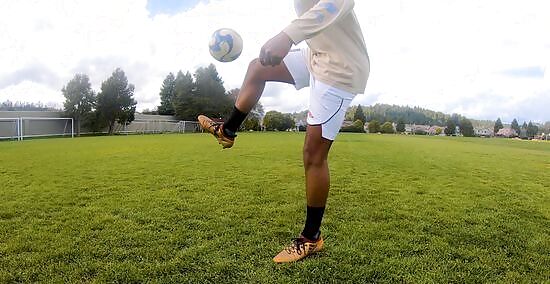
Flick the ball into the air with your foot to to juggle and catch it. Hold your leg still like you normally do when balancing the ball, then move your toes and leg to pop the ball back up towards your hands. You can then catch the ball with your hands or attempt to catch it again on your foot for more balancing. To master this technique, you will need to maintain your balance while lifting up the ball and catching it again. This trick is useful for juggling, but it also helps for practicing your balance. The ball may not fall straight down in front of you, so you may need to follow it with your foot. Another way to do this is to set the ball on your foot, balance it as long as possible, then flick it back up into your hands. Doing it that way is useful if you’re having trouble balancing when tossing the ball in the air.
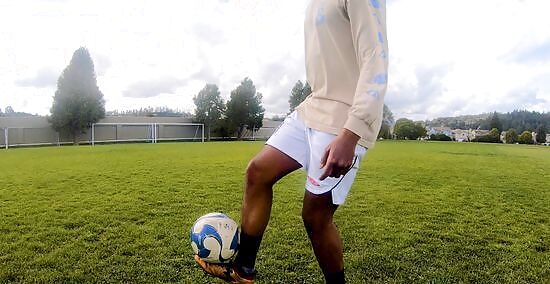
Toss the ball into the air with your hands to catch it with your foot. Stand up straight, then pop the ball up in front of you. Keep it close to your body so you don’t have to move far to catch it. Get your foot in position as you normally would so the ball lands on your shoelaces. After it rolls back toward your leg, balance it there. This practice helps you get a sense of how the ball moves over your foot. For the best results, contact the ball with the flat part of your foot right behind your toes. In soccer juggling, this move is known as a foot stall. Even if you don’t plan on doing other tricks, practicing this move will improve your balancing skills.












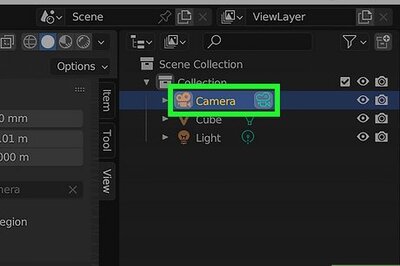






Comments
0 comment